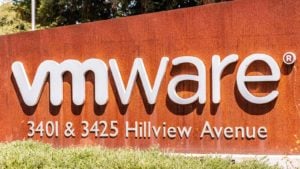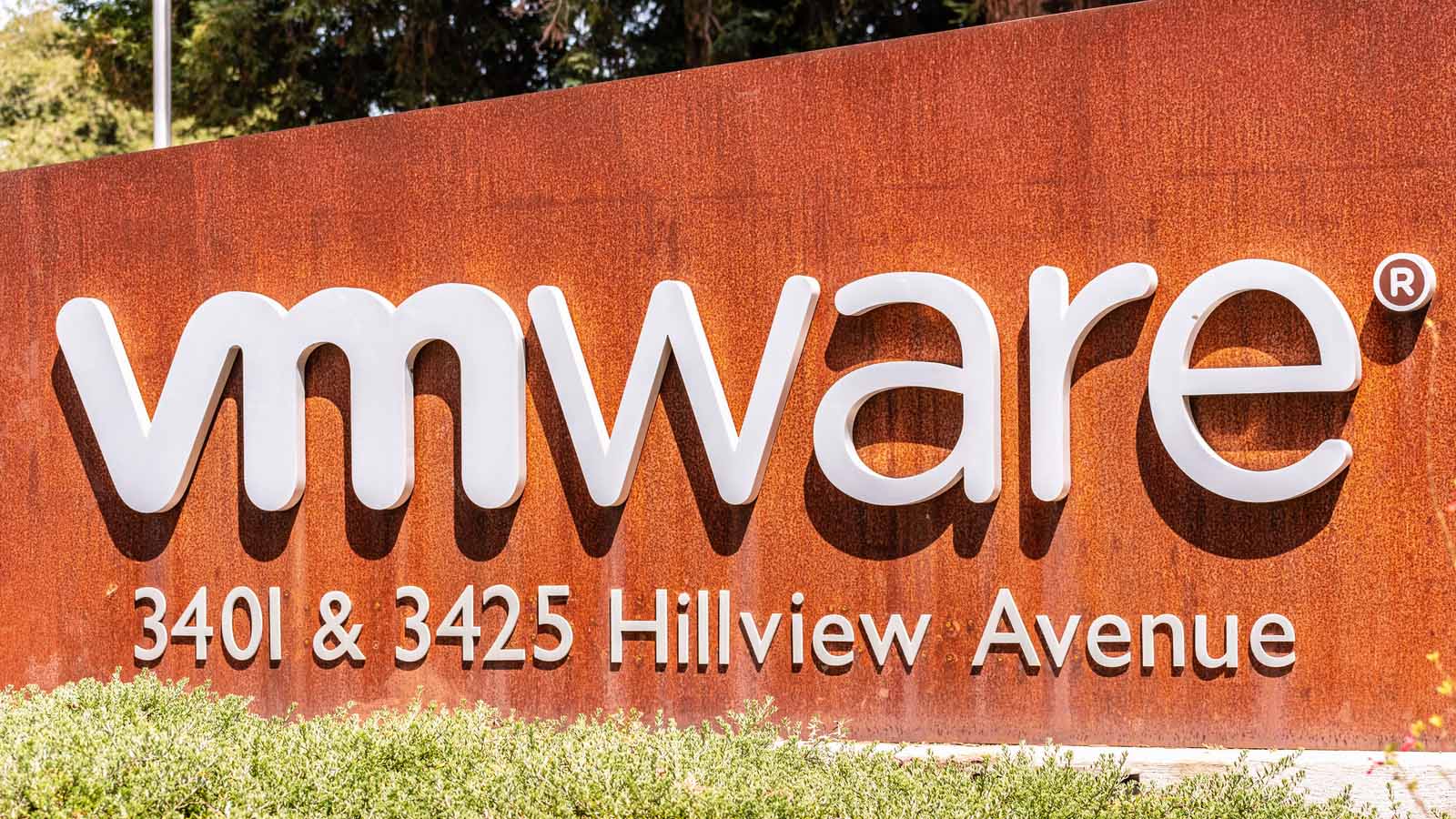VMware (NYSE:VMW), the jewel in the crown at Dell Technologies (NYSE:DELL), is one of the cheapest tech stocks you can buy right now, selling at under 10 times last year’s earnings. 2020 will be a pivotal one for VMW stock. It has closed on its $2.7 billion purchase of Pivotal Software. It can now offer what it calls a complete cloud solution against International Business Machines’ (NYSE:IBM) Red Hat unit.

Both companies are active in the market for “hybrid cloud,” where corporate data centers run the same software, and interoperate with, the public clouds of Microsoft (NASDAQ:MSFT), Alphabet (NASDAQ:GOOG,NASDAQ:GOOGL) and Amazon (NASDAQ:AMZN).
VMware has had to transform itself — and its offerings — to reach this point, going beyond the data centers where its vSphere virtualization software had dominated. It now has relationships with all the large public clouds, and 4,300 regional providers.
However, growth could really jump once customers figure out what a hybrid cloud is for, and act on that knowledge.
Move to the Edge
The 2010s were about the economics of cloud.
Virtual machines, distributed computing and open-source software combined into a new, low-cost and hosted paradigm for corporate computing. VMware dominated the virtualization space. It now aims to expand the reach of its vSphere into the Kubernetes container space, which lets companies put existing software into cloud formation.
This alone could spark a lot of growth. Cloud software, sold as a service, still represents just one-quarter of the enterprise software market. Analysts are now pounding the table for VMW stock, calling it a “hybrid monster.” They point to parent Dell’s lead in “hyperconverged storage”.
But, clouds are highly centralized. Hybrid cloud takes off when cloud technologies reach the network edge. It’s this market that VMware is now targeting, seeking use cases in automated factories, artificial intelligence and virtual reality. To work seamlessly, these applications need to have fast cloud resources readily available, either on-premise or nearby. (Development of Pivotal was originally co-funded for this “machine Internet” by General Electric (NYSE:GE)).
VMware spent 2019 preparing for this moment, investing heavily in Indian programmers to make vSphere container-friendly, in what it called Project Pacific. Gartner (NYSE:IT) predicts that 75% of companies will be running containers by 2022 so this was an essential strategic move.
Will Dell Share?
VMware is already an earnings monster.
As our Vince Martin notes, VMware net income rose 21% last year, and 18% the year before. Yet, even if you take out the extraordinary gains from restructuring, the stock trades at just 21 times estimated 2021 earnings.
Some investors question whether VMware can execute on its pivot from vSphere, which is usually sold in corporate data centers, to pure cloud. The recent market pivot from a focus on growth to value is a second reason the stock has lagged.
However, despite delivering $1.8 billion to its net income line over the last three quarters, VMware has no regular dividend. That’s because Dell owns 82% of VMware. Only 18% of VMware stock trades. Until its acquisition of VMware was complete, Dell was also losing money. Yet, it paid out a special VMware dividend of $11 billion on completion of the deal to take itself public. Most of that went to Michael Dell, Dell shareholders and Silver Lake, his hedge fund partners.
The Bottom Line on VMW Stock
VMW stock is tough to value correctly because VMware is not an independent company. It is a unit of Dell and has been run with Dell’s interests in mind.
The year that starts in February is a “return to normalcy,” VMware’s relaunch as a cloud software company. Potentially, VMware stock is one of the great investments of the coming decade.
Assuming, that is, its owners share the wealth.
Dana Blankenhorn is a financial and technology journalist. His latest book is Technology’s Big Bang: Yesterday, Today and Tomorrow with Moore’s Law, essays on technology available at the Amazon Kindle store. Write him at danablankenhorn@gmail.com or follow him on Twitter at @danablankenhorn. As of this writing he owned shares in AMZN and MSFT.
